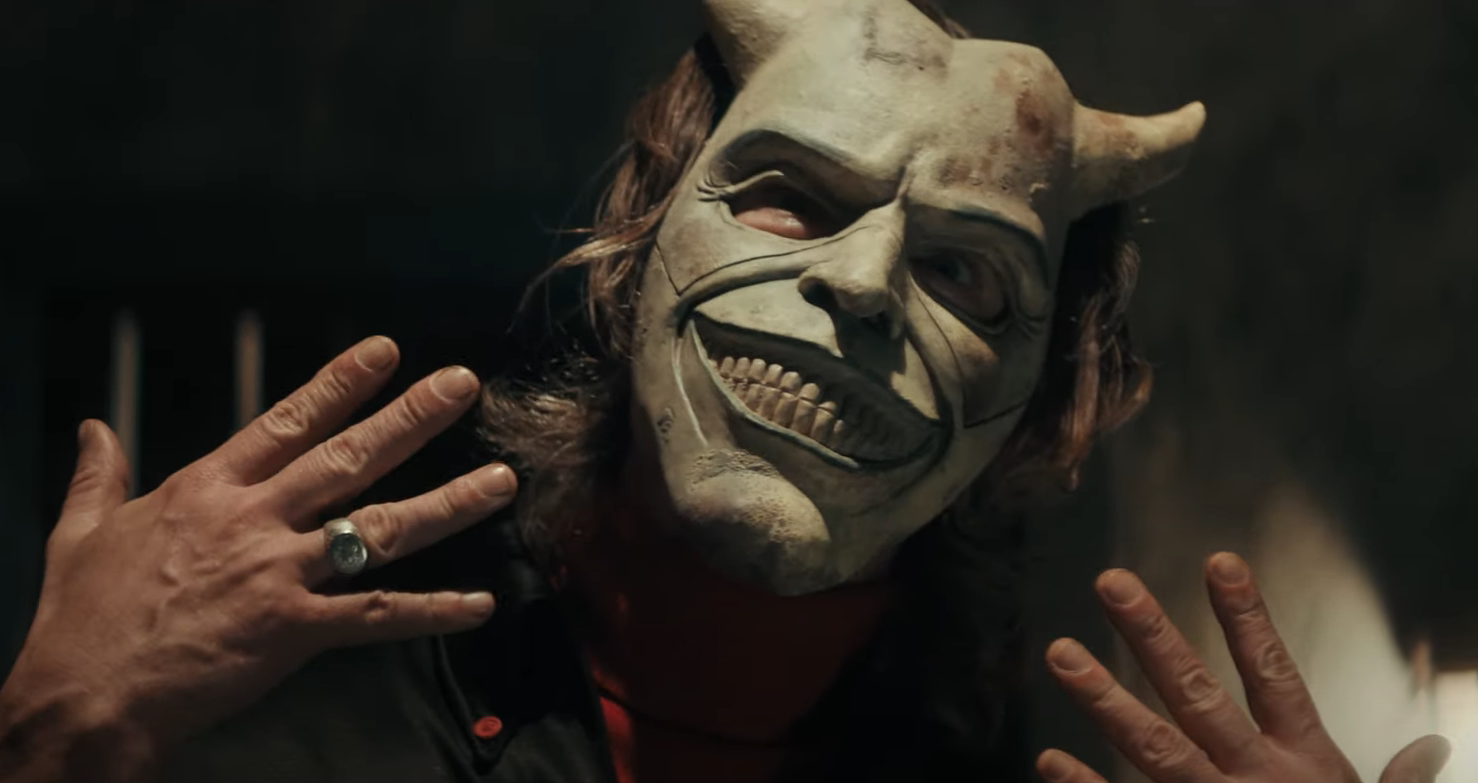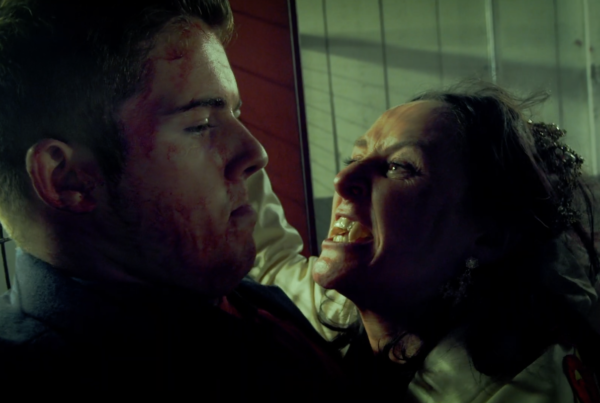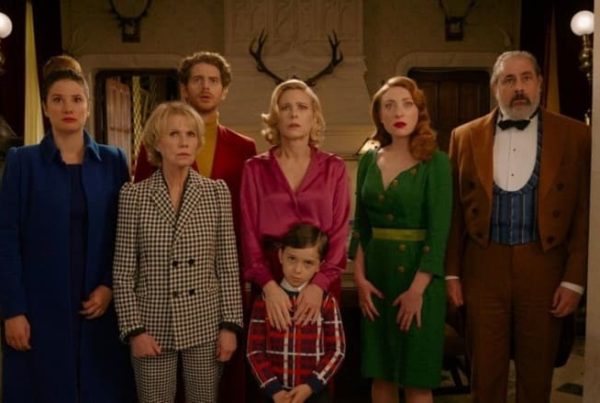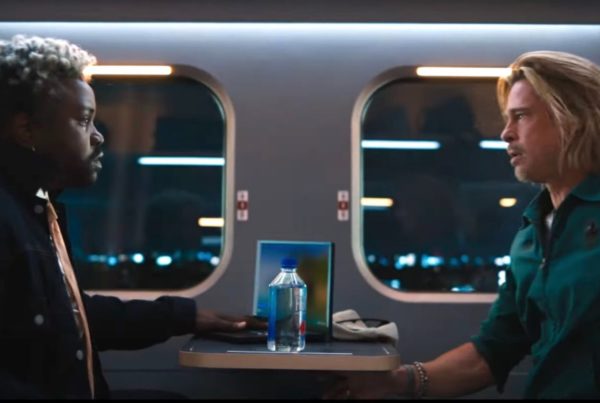Directed by Scott Derrickson
Written by Scott Derrickson, C. Robert Cargill (based on a short story by Joe Hill)
Starring Mason Thames, Ethan Hawke, Madeleine McGraw, Jeremy Davies
Based on a short story by Joe Hill (Locke & Key), and reuniting Sinister director Scott Derrickson with star Ethan Hawke, The Black Phone certainly has a stellar horror pedigree – but will it deliver, or just phone it in?
Locked in a soundproof basement by a serial abductor known as “The Grabber” (Ethan Hawke), Finney (Mason Thames) fears that he is to be the latest in a string of child victims from the Denver suburbs. Trapped and alone he hears the ringing of an old disconnected phone on the wall, through which the killer’s previous victims communicate to him.
There’s something to be said for keeping a tight rein on the script to bring the film in around an hour forty, while still giving the sensation that everything has been neatly resolved. The Black Phone comes across as a lean piece of cinema that quickly conveys its tone and themes and leaves the audience feeling tense throughout its run. Derrickson establishes a mean and ugly view of the seventies, one heightened by Mark Korven’s deliberately discordant soundtrack, giving us a horror that functions on anxiety rather than cheap jump scares and gore. Even before we become stuck in the dank, shadowy, basement dungeon that is the chief location of the film, we feel a constant state of oppression from the low-lit burnt umber pallette, fragile toxic masculinity, and grainy film texture – like it is a world constantly in danger of becoming a grindhouse film, even before the unthinkable happens.
This is all brought home by a chilling villainous turn by Ethan Hawke. Buried under a mask designed by Tom Savini and Jason Baker, Hawke is forced to give an exaggerated physical performance, but one that conveys the menace perfectly. He is creepy, terrifying, even disarmingly funny at times, all brought about with a sickening flair that never lets you forget that you are dealing with someone dangerously unhinged. Against this Mason Thames’ performance comes across as frightened but measured, pitched perfectly as someone struggling to survive through wits and cunning. Finally, Madeleine McGraw shines in the role of Finney’s psychic sister, acting as a point of view character for the outside manhunt,but also an occasionally comic relief valve for the building tension that is Finney’s struggle.
The only issue The Black Phone may have is how it handles its theme of the cycle of family violence. It’s clearly threaded into the narrative both in Finney’s background and The Grabber’s ritualised behaviour, but in tying it to a coming of age story combined with a supernatural revenge story, it becomes a little muddied. Although the conclusion fits both the genre and the period setting perfectly, if you contemplate the issues it’s exploring it’s a darker and more nuanced ending than how it is played in the film – glorifying a shift from resilient survivor to dominant alpha. To be clear, it is not a dealbreaker as it’s portrayed, but something that personally sat a little odd with me (although your mileage may vary).
The Black Phone certainly makes good on its potential, delivering a taut horror film that will put audiences through the ringer.




